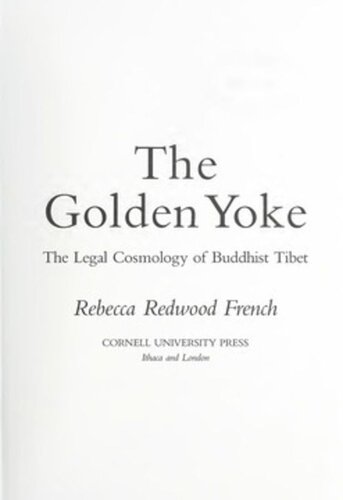

Most ebook files are in PDF format, so you can easily read them using various software such as Foxit Reader or directly on the Google Chrome browser.
Some ebook files are released by publishers in other formats such as .awz, .mobi, .epub, .fb2, etc. You may need to install specific software to read these formats on mobile/PC, such as Calibre.
Please read the tutorial at this link: https://ebookbell.com/faq
We offer FREE conversion to the popular formats you request; however, this may take some time. Therefore, right after payment, please email us, and we will try to provide the service as quickly as possible.
For some exceptional file formats or broken links (if any), please refrain from opening any disputes. Instead, email us first, and we will try to assist within a maximum of 6 hours.
EbookBell Team

4.1
60 reviewsThe Golden Yoke is a remarkable achievement. It is the first elaboration of the legal, cultural, and ideological dimensions of precommunist Tibetan jurisprudence, a unique legal system that maintains its secularism within a thoroughly Buddhist setting. Layer by layer, Rebecca Redwood French reconstructs the daily operation of law in Tibet before the Chinese invasion in 1959.
In the Tibetans' own words, French identifies their courts, symbols, and personnel and traces the procedures for petitioning and filing documents. There are stories here from judges, legal conciliators, and lay people about murder, property disputes, and divorce. French shows that Tibetan law is deeply embedded in its Buddhist culture and that the system evolved not from the rules and judgments but from what people actually do and say. In what amounts to a fully developed cosmology, she describes the cultural foundation that informs the system: myths, notions of time and conflux, inner morality, language patterns, rituals, use of space, symbols, and concepts.
Based on extensive readings of Tibetan legal documents and codes, interviews with Tibetan scholars, and the reminiscences of Tibetans at home and in exile, this generously illustrated, elegantly written work is a model of outstanding research. French combines the talents of a legal anthropologist with those of a former law practitioner to develop a new field of study that has implications for other judicial systems, including our own.